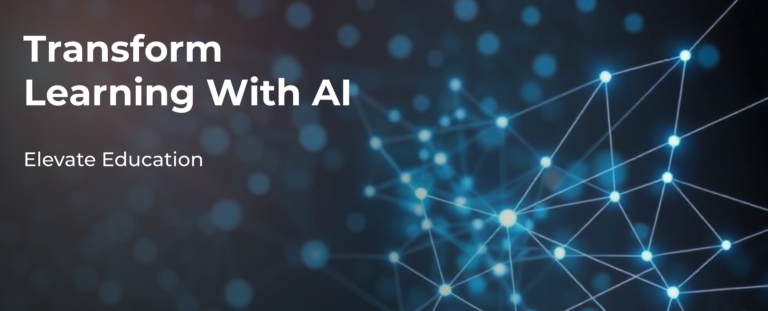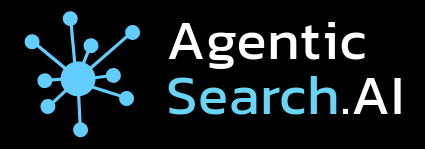How Agentic AI Searches Can Revolutionize Higher Education

In an era where technology continuously reshapes industries, the intersection of artificial intelligence (AI) and higher education presents a unique opportunity for transformation. One of the most exciting advancements within AI is the development of agentic AI, a technology capable of autonomous decision-making, task completion, and context-aware problem-solving. This innovation has profound implications for how universities, students, and educators navigate information, perform research, and engage with the academic world.
What is Agentic AI?
Agentic AI refers to a class of AI systems designed not just to assist or recommend, but to actively engage in tasks and make decisions autonomously. Unlike traditional AI, which typically provides data insights or responses based on predefined algorithms, agentic AI can adapt to new inputs, handle ambiguity, and make complex decisions based on learned patterns. Think of it as an AI that doesn’t simply answer questions but can take initiative and perform actions on behalf of a user—an AI agent capable of navigating systems, analyzing data, and learning over time.
How Agentic AI Can Benefit Higher Education
Personalized Learning and Research Assistance
One of the most promising applications of agentic AI in higher education is personalized learning. Agentic AI can function as an intelligent tutor, offering real-time, individualized feedback and recommendations based on a student’s learning style and performance. Instead of a one-size-fits-all approach, students can receive tailored content, practice problems, and resources that directly target their areas of need.
For researchers, agentic AI can actively engage in the process of gathering and analyzing academic literature. It can autonomously search through databases, retrieve relevant papers, and summarize findings, streamlining the research process. Furthermore, these AI agents could recommend papers and methodologies based on a researcher’s current work, making it easier to stay up-to-date with the latest developments in their field.
Higher Education Search Suite: Seamless Searching Across University Resources
A key development in agentic search for higher education is the Higher Education Search Suite, offered by AgenticSearch.AI. This platform enables students, faculty, staff, and other internal users to search across a wide range of university files—everything from policy documents and academic calendars to specific academic programs.
For instance, a student in an MBA program could search across syllabi for specific information about a topic, or explore all content within the program, including lecture videos, to see how many times a topic is mentioned. This intelligent, context-aware search makes it possible for users to find the exact information they need, even if it’s embedded across various types of content, saving time and improving the learning experience.
Administrative Efficiency and Decision Support
Higher education institutions are vast organizations with complex operations. From admissions and course scheduling to student services and faculty management, administrative tasks can be overwhelming. Agentic AI systems can be deployed to automate and optimize many of these functions. For instance, AI agents could assist with admissions processes by autonomously reviewing applications, flagging inconsistencies, and making recommendations based on predefined criteria.
In faculty management, agentic AI could help streamline course offerings, analyze faculty workload, and even suggest improvements to academic programs based on student success rates and feedback. Additionally, these AI systems can serve as decision support tools, providing administrators with actionable insights drawn from data across the institution.
Enhanced Student Support and Engagement
Higher education is not just about academic learning—it’s also about the student experience. Agentic AI can be used to enhance student support services by providing round-the-clock, AI-powered advisors that help students navigate challenges, from course selection to mental health concerns. These AI advisors can assist with planning academic paths, resolving scheduling conflicts, and even providing career guidance, ensuring that students feel supported throughout their educational journey.
Moreover, AI-driven engagement tools can actively monitor a student’s progress and intervene when issues arise. For example, if a student is falling behind in coursework, an AI agent could suggest relevant study resources or connect them with tutors. This proactive approach ensures that students receive timely help, which can improve retention and success rates.
Improved Access to Learning Materials
One of the ongoing challenges in higher education is ensuring that learning materials are accessible to all students, including those with disabilities. Agentic AI can assist in making educational content more accessible. For example, an AI could automatically translate textbooks into different languages or convert them into more accessible formats, such as audio or braille. Additionally, AI agents could help navigate online platforms and materials, offering accessibility features that adapt to individual needs in real time.
Driving Innovation in Teaching and Pedagogy
In the classroom, agentic AI has the potential to transform the teaching and learning dynamic. AI agents could act as teaching assistants, providing real-time feedback to students during lectures, answering questions, and facilitating discussions. In a remote or hybrid learning environment, AI can help create an interactive, immersive experience where students are more engaged, while also offering educators data-driven insights into student engagement and comprehension.
Furthermore, AI can assist in curriculum development, identifying trends in student performance, emerging industry demands, and gaps in knowledge. This data-driven approach can ensure that teaching methods and course content remain relevant and responsive to the changing landscape of academia.
Ethical Decision Making and Bias Mitigation
AI’s ability to learn from data offers an opportunity to mitigate bias in academic environments. When properly designed, agentic AI can help identify and address areas where bias may exist—whether in admissions decisions, grading, or research recommendations. By examining large datasets and recognizing patterns that humans might miss, AI can highlight discrepancies and suggest more equitable practices.
Moreover, AI systems can be trained with ethical frameworks to ensure that their actions align with the values of the institution and society at large. This can help promote fairness, transparency, and accountability in higher education.
Challenges to Consider
While agentic AI holds great promise, it’s not without its challenges. Ethical concerns, such as privacy, bias, and the potential for over-reliance on AI systems, must be carefully considered. Additionally, institutions will need to ensure that AI technologies are implemented in ways that complement rather than replace human educators and administrators.
Training faculty, staff, and students to effectively interact with AI systems will also be crucial. There will need to be an emphasis on developing digital literacy and ensuring that everyone in the academic community understands how AI works and how to use it responsibly.
Conclusion
Agentic AI is poised to revolutionize higher education by transforming how we learn, teach, and manage institutions. From personalized learning experiences and research assistance to more efficient administrative processes and enhanced student engagement, the potential benefits are vast. The Higher Education Search Suite from AgenticSearch.AI is just one example of how this technology can streamline information access and improve decision-making for all users in higher education. By embracing agentic AI, higher education can move toward a more personalized, efficient, and inclusive future.
